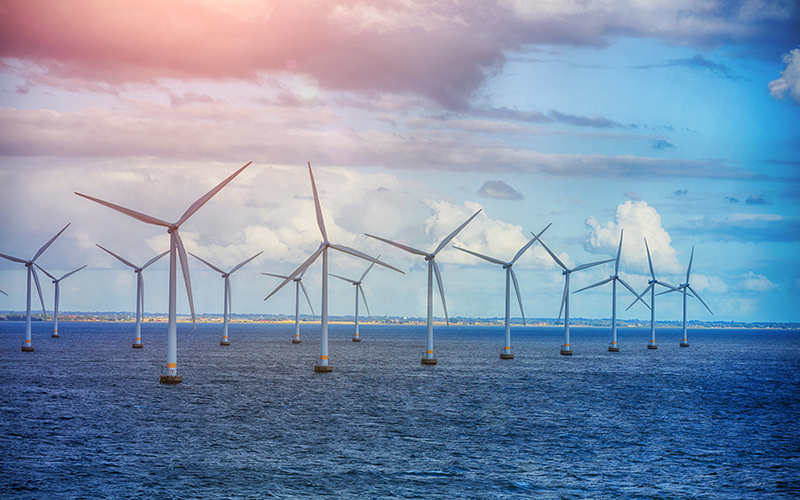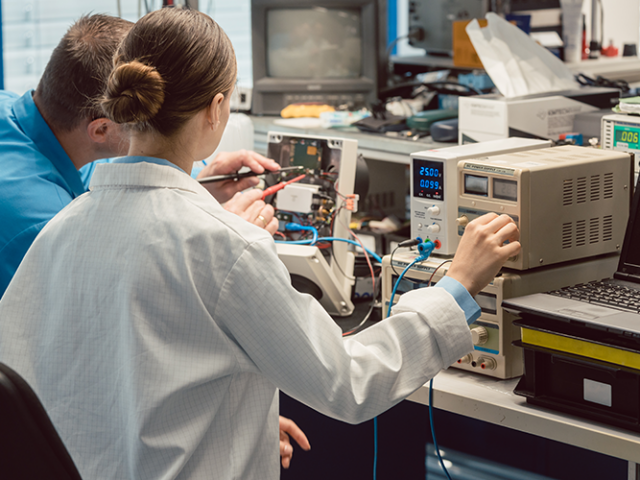The Offshore Renewable Energy (ORE) Catapult has unveiled a report entitled ‘Supply Chain Capability Requirements for UK Floating Offshore Wind Farms.’ This publication casts a spotlight on the indispensable skills crucial for the flourishing development of the UK’s floating offshore wind farms, aligning with the nation’s net zero objectives.
Central to the report is an exploration of the inter-array dynamic cable systems pivotal to floating wind farms, highlighting the United Kingdom’s imperative to foster skills development to sustain its leadership in the global arena.
With the UK Government’s ambitious target to achieve 50GW of offshore wind capacity by 2030, which encompasses 5GW from floating offshore wind, the offshore wind workforce, currently at 32,000, is projected to burgeon to over 100,000 by the end of this decade.
Andrew Esson, the Skills Lead at ORE Catapult, emphasised the significance of skill and talent cultivation, stating: “The UK is a global leader in offshore wind expertise and installed capacity, and maintaining a strong pipeline of skills and talent is essential to maintaining this position. We need to see prompt action on developing course content, recruiting students, re-skilling and providing on-the-job experience now – in order to meet our net zero targets.”
The report sheds light on the distinctive challenges presented by floating wind technology and delineates the requisite capabilities throughout the dynamic cable system’s lifecycle, from design inception through to operation. This collaborative effort, alongside Innovate UK’s Workforce Foresighting Hub, aspires to unify industry stakeholders, educators, and domain experts in identifying and nurturing the skills imperative for future advancements.
Debbie Johnson, Head of Innovation Talent & Skills at Innovate UK, remarked on the foresight-driven approach: “The output reports from each workforce foresighting cycle, detail future supply chain capabilities, prototype future occupational profiles and deliver recommendations to drive action, to ensure that the UK continues to harness the potential of innovative technologies.”
The report advocates for the adaptation of existing educational programs to meet future skill demands, suggesting that niche, technical domains warrant further attention through PhD sponsorships and heightened industry collaboration.
It further calls upon employers to align staff development with industry requirements, focusing on the up-skilling and re-skilling across the UK’s supply chain sectors.
Key recommendations for the future include:
- Engaging with principal industry stakeholders to establish precise Workforce Demand Forecasts for High Voltage Dynamic Cables
- Collaborating with educational and training providers to launch new programmes addressing the High Voltage Dynamic Cables technology challenge
- Developing an array of educational and training modules to foster transferable skills across various high-voltage electrical activities
- Implementing ongoing Workforce Foresighting cycles to agilely respond to industry demands
RenewableUK, endorsing the ORE Catapult report, plays a vital role as the industry sponsor. Scott Young, RenewableUK’s Head of Skills, expressed support for this essential initiative: “We’re pleased to sponsor this critical initiative aimed at addressing skills gaps in the offshore wind sector. As the industry moves towards building more floating offshore wind projects at scale, it’s essential to equip the workforce with the necessary skills and expertise. We’re looking forward to collaborating with industry stakeholders, ORE Catapult, and other partners to implement the proposed next steps outlined in the report and create a workforce capable of maximising the deployment of innovative floating wind technology as fast as possible.”
You can read the full report here: ‘Supply Chain Capability Requirements for UK Floating Offshore Wind Farms’




